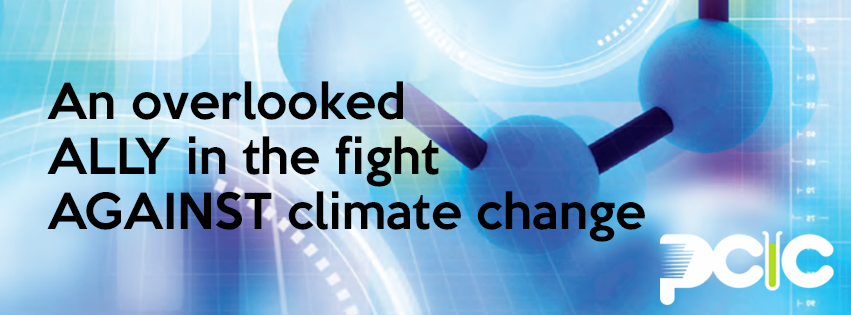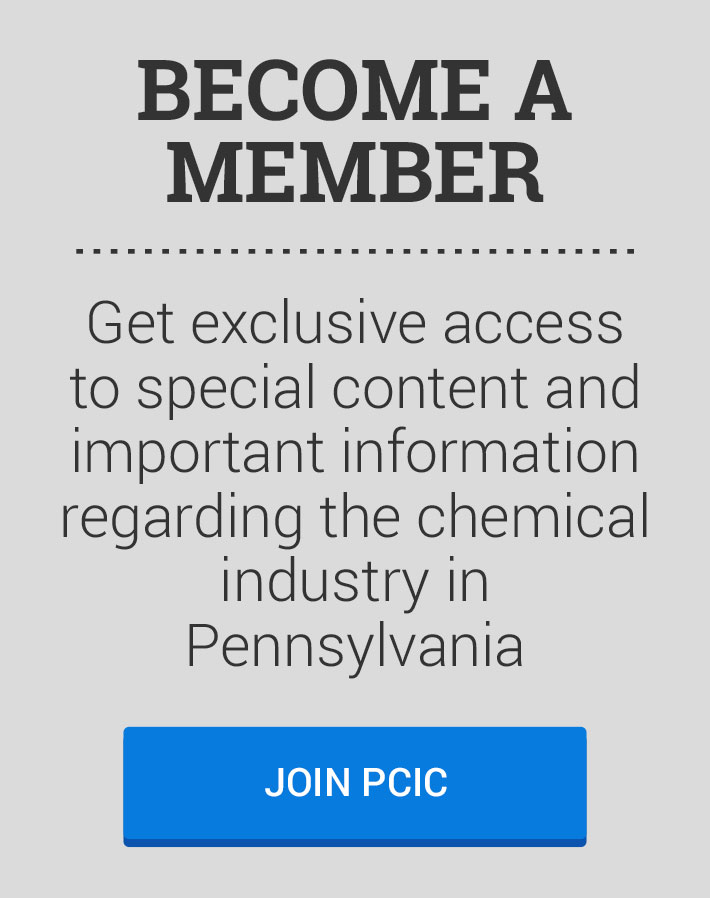As many of us adjust to working from the couch, with daytime television in the background and a confused dog at our side, it’s business as usual or double-time for the majority of Pennsylvania’s manufacturers and their supply chains.
Critical to our ability to contain COVID-19, flatten the curve and treat those with confirmed cases are the necessary tools, supplies and infrastructure for the healthcare professionals on the front lines to get the job done.
Disinfectants and intensive care medical equipment, such as ventilators and respirators, personal protective equipment such as reusable masks and gloves, therapeutics and laboratory supplies are all created using, or supported by, chemical manufacturing and each of these products are currently being manufactured in Pennsylvania.
For the rest of us practicing social distancing from the confines of our home, we still need clean running water, electricity, food and medications to stay safe and healthy -- and that means continued manufacturing operations.
The products in your grocery store, the ingredients for your last Grubhub order and the package containing the last available roll of toilet paper on Amazon that was just delivered to your doorstep don’t originate from just one retailer or one manufacturer. A product’s journey from raw material to your home is supported by hundreds, sometimes thousands of different companies.
Take disinfectant wipes as an example -- a combination of polyester, cotton, cellulose from wood pulp, rayon fibers and sometimes polypropylene and polyethylene to reinforce the strength of the sheet. Each of those is a separate raw material manufacturer. To provide the cleaning and disinfectant power, wipes will typically contain potassium hydroxide, sodium hypochlorite, ammonium chloride and other substances. Again, a variety of chemical manufacturers support the production of those chemicals.
That is just a description for the product. You also need packaging -- polyethylene or a pulp papermill to make the package, ink for labeling, adhesives to seal it, pallets to load and unload the product onto a truck, auto part manufacturers to ensure trucks can keep moving product and we haven’t even begun to dive into the manufacturers that make the parts and service the machines used by other manufacturers that are now working overtime to fulfill demand and will most certainly need replacements and repairs.
You can see how if the wrong jenga piece is pulled, it all comes crashing down, leaving food to rot at the manufacturer or cleaning supplies stuck in one part of the chain with no way to move forward.
On March 19, the U.S. Department of Homeland Security Cybersecurity & Infrastructure Security Agency Office developed a Memorandum on the Identification of Essential Critical Infrastructure Workers During COVID-19 Response to serve as a template for states on what industry sectors are essential and which should halt operations. This was a well thought out guideline that took into consideration the intricate nature of manufacturing and the importance of the supply chains that support each life-essential product.
We appreciate that on March 20, Gov. Wolf followed the guidance of the Department of Homeland Security and updated the previous guidance issued by his administration to allow for the continued operation of those companies.
While the general public might not understand that an industry subsector of adhesives is critical to the healthcare community to provide medical tapes and bonding, medical wearables, blood glucose monitoring strips and adhesive closures, the Department of Homeland Security ensured it was included in their comprehensive view of the complicated matrix of manufacturing necessary to sustain life.
Chemicals are the building blocks, and chemistry is the starting point, for almost every product we need to survive. Pennsylvania ranks eighth nationally in manufacturing with chemicals as the top sector. As a significant exporter to our neighboring states and across the country, the decisions we make and our ability to continue production of life-essential products will play a significant role in how quickly we as a country are able to flatten the curve.
Manufacturers across the state, acutely aware of their role in supporting the supply chain for critical products and services to fight COVID-19 have reduced operations to only the essential staff necessary to complete safe operations. From the assembly line making valves for the machines producing N95 masks to the process operator ensuring plant efficiency and monitoring quality, they are working hard for all of us.
As you pace the confines of your house today, consider all of the products you still have access to that are keeping you healthy and safe and the tools medical professionals are relying on to fight this virus and help those in need. Consider the manufacturer, the manufacturer’s supplier, their supplier and the men and women that continue to go to work for us -- and if you know one, say thank you.
AVAILABLE RESOURCES:
DHS CISA Memo and Guidelines (issued 3/19)
PA Gov. Wolf Order (issued 3/19)
PA Gov. Wolf Guidance on Life-essential Business Sectors (updated 3/20)
DCED Order / Business FAQs (issued 3/20)
DCED Waiver Exemption Application








